Also known at various times as Beach’s Ales, Bishop’s Brewery and Market Brewery (Market Porter).
Brewpub no longer brewing
Market Porter, 9 Stoney Street SE1 9AA (Southwark)
First sold beer: December 1981 (as Market Brewery)
Brewing suspended: 1984
Brewing resumed: May 1985
Ceased brewing: 1988
Closed brewery
2 Park Street SE1 9AD (Southwark)
First sold beer: November 1993 (as Bishop’s Brewery)
Brewing suspended: February 1998
Brewing resumed: 2000 (as Old London Bridge Brewery)
Ceased brewing: 2000
The central area of Southwark and the Borough immediately south of London Bridge boasts a tradition of beer appreciation dating from long before the development of the nearby Bermondsey Beer Mile in the 2010s. Historically, it was one of London’s main brewing centres, particularly noted for the Anchor Brewery, otherwise known as Barclay Perkins, as well as the headquarters of the capital’s hop trade. Becky’s Dive Bar, in that part of the cellars of the Hop Exchange on Southwark Street now occupied by the Sheaf, was from the late 1950s one of Britain’s (and the world’s) first ‘craft beer bars’, at its peak offering a choice of around 250 beers and with several of the founders of the modern beer consumer movement among its customers.
The Dive Bar closed for hygiene reasons in 1975, but the beer loving tradition continued in places like the Market Porter, a traditional 1890s pub on a corner site where refreshments for workers at the adjacent Borough Market had been offered since at least the 17th century. Back then, the market was still a fruit and vegetable wholesale market at its busiest early in the morning, and the pub retained (and retains) a license enabling it to open from 06.00-09.00.
In 1981, licensee John Beach decided to further the pub’s developing interest in ‘real ale’ by turning it into a brewpub, installing a small malt extract kit. It was known as the Market Brewery but also used the brand Beach’s Ales after its owner. The next year, Andy Bishop took over the brewing duties, but it apperas that despite his brewing experience at various Firkin pubs, production proved difficult to sustain on the small kit and was suspended in 1984.
Brewing activities resumed the following year with the acquisition of a better, though likely still extract-based, kit, installed in a separate unit at the rear of the premises at 1 Park Street. The pub’s drinking area has since been extended to occupy this space but it’s still readily identifiable as a separate building from the exterior. Once again the names Market Brewery and Beach’s Ales were both used.
By 1988 the facility was producing around 12 hl of cask beer a week and supplying two other pubs: its core beers were a bitter at around 3.7% and a special at around 4.7%. Nonetheless it fell out of use later that year, though there was a failed attempt to revive it in 1989.
The kit remained in situ until 1993, when Andy Bishop bought it to set up his own Bishop’s Brewery, moving it to a unit in an old grain warehouse immediately opposite on the other corner of Park Street and Stoney Street. In Spring 1996 he upgraded to a 10 hl full mash plant, making use of the existing split-level floor to stagger the brewing vessels.
By 1997, the brewery was reaching capacity, with five or six brews a week. Like most small breweries of its day it primarily produced cask, with core beers including Cathedral Bitter (3.7%), referring to nearby Southwark Cathedral as well as Andy’s last name, and stronger pale ale Willie’s Revenge (4.7%). Despite this, production ceased at the end of 1998.
In 2000 a new owner bought the lease and equipment and briefly revived production under the name Old London Bridge Brewery but this initiative didn’t survive the year. The kit was removed shortly afterwards and renowned specialist coffee roaster Monmouth Coffee then converted the premises into a shop which still trades today. Monmouth owner Anita LeRoy recalls the market trustees still referring to the space as ‘the brewery’, and the split level layout remains visible.
There’s a pleasing circularity to the fact that Monmouth was one of a group of specialist food and drink businesses that rented arches in Bermondsey’s Druid Street nearby in the 2000s, which is how The Kernel came to be located there initially, inadvertently founding today’s Bermondsey Beer Mile.
Updated 3 May 2024.
More London breweries
Closed London breweries

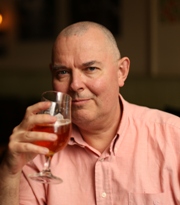
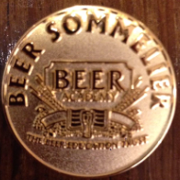
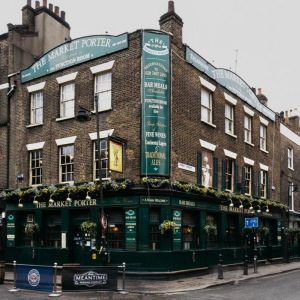
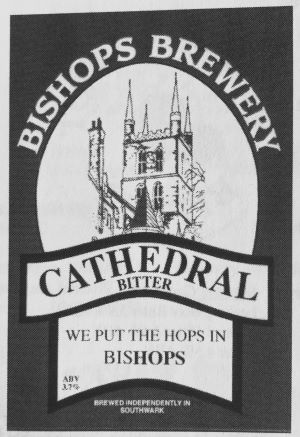
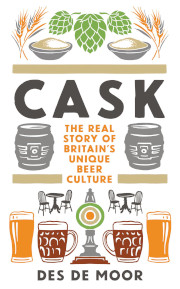
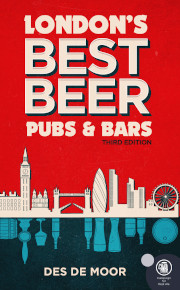
Leave a Reply